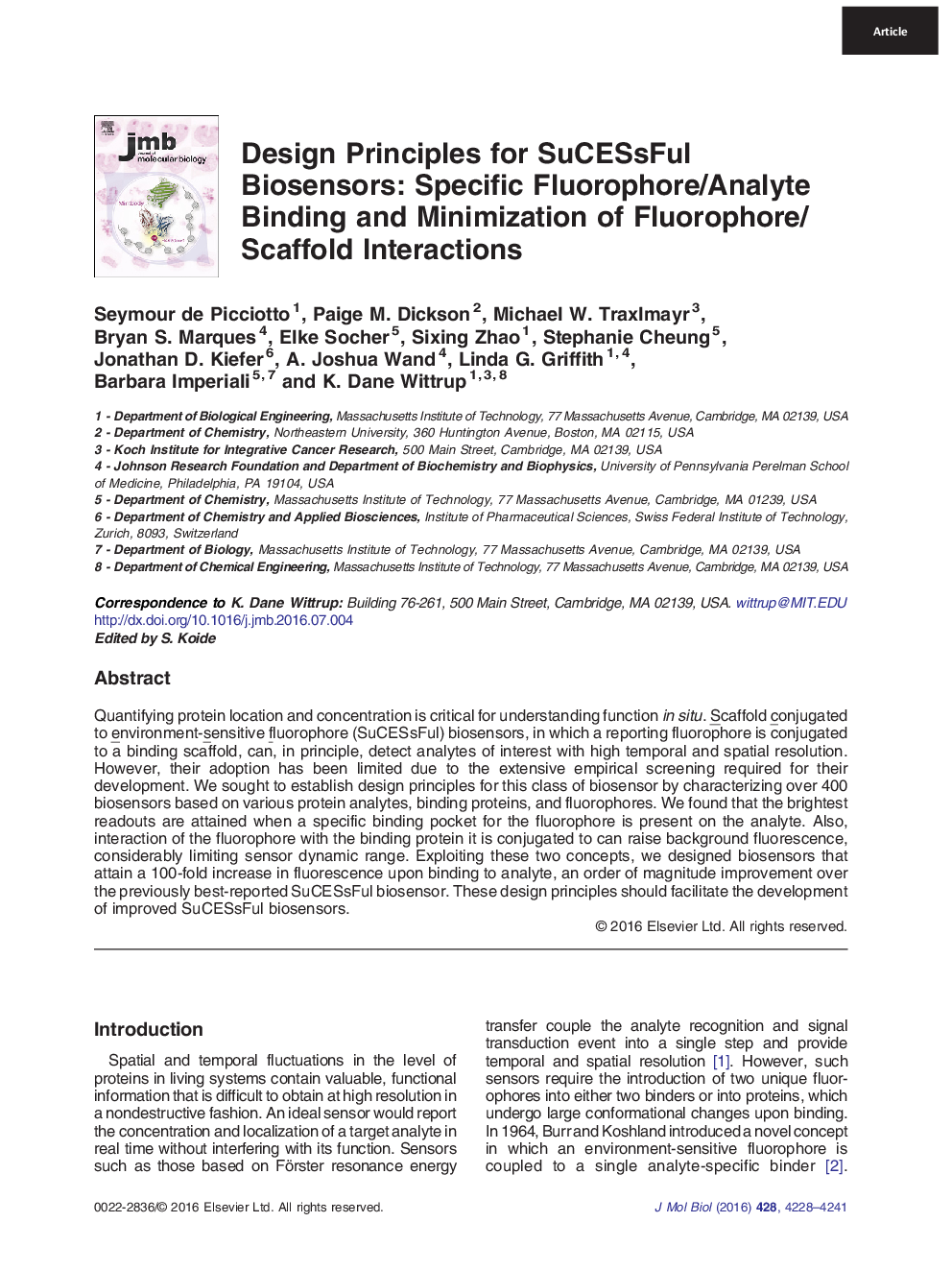| کد مقاله | کد نشریه | سال انتشار | مقاله انگلیسی | نسخه تمام متن |
|---|---|---|---|---|
| 5533395 | 1402121 | 2016 | 14 صفحه PDF | دانلود رایگان |

• SuCESsFul biosensors report protein interactions via environment-sensitive dyes.
• We observed that the current design principles are insufficient.
• Fluorophore-binding pockets are required for strong fluorescence activation.
• Scaffold/fluorophore interaction can raise background fluorescence.
• Using our new design criteria, we engineered the most responsive sensor to date.
Quantifying protein location and concentration is critical for understanding function in situ. Scaffold conjugated to environment-sensitive fluorophore (SuCESsFul) biosensors, in which a reporting fluorophore is conjugated to a binding scaffold, can, in principle, detect analytes of interest with high temporal and spatial resolution. However, their adoption has been limited due to the extensive empirical screening required for their development. We sought to establish design principles for this class of biosensor by characterizing over 400 biosensors based on various protein analytes, binding proteins, and fluorophores. We found that the brightest readouts are attained when a specific binding pocket for the fluorophore is present on the analyte. Also, interaction of the fluorophore with the binding protein it is conjugated to can raise background fluorescence, considerably limiting sensor dynamic range. Exploiting these two concepts, we designed biosensors that attain a 100-fold increase in fluorescence upon binding to analyte, an order of magnitude improvement over the previously best-reported SuCESsFul biosensor. These design principles should facilitate the development of improved SuCESsFul biosensors.
Graphical AbstractFigure optionsDownload high-quality image (152 K)Download as PowerPoint slide
Journal: Journal of Molecular Biology - Volume 428, Issue 20, 9 October 2016, Pages 4228–4241